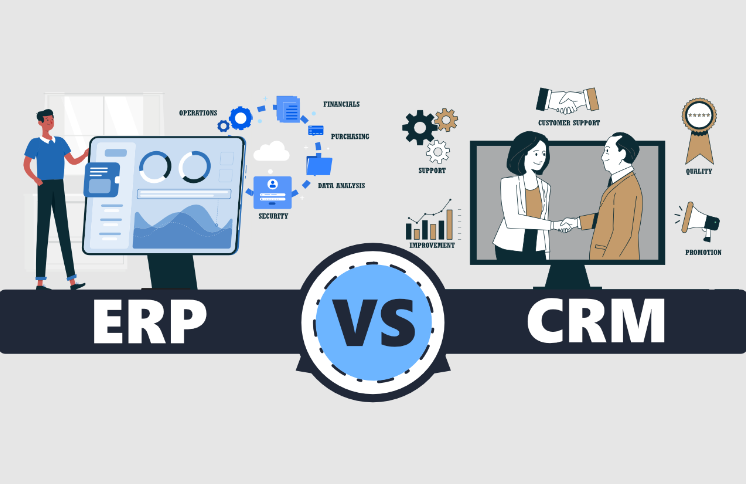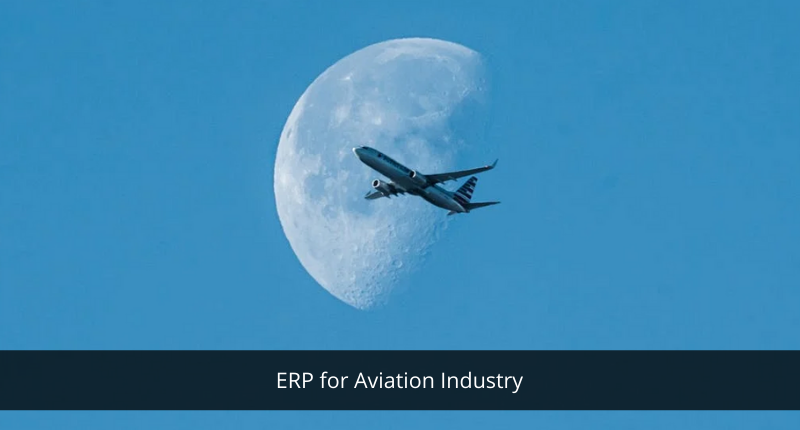How ERP Software is Revolutionizing Aviation Operations?
Enterprise Resource Planning (ERP) software has become an essential tool for many industries, including the aviation industry. ERP software can provide aviation businesses with a comprehensive solution for managing various aspects of their operations, from finance to maintenance, to inventory, to supply chain management. This article will explore the benefits of ERP software for aviation industry and how it can improve efficiency and productivity.
Table of Contents
What is ERP Software?
ERP software is a comprehensive management tool that integrates different business processes into a single platform. The software is designed to streamline operations, increase productivity, and enhance overall efficiency. ERP software offers real-time visibility into all aspects of a business’s operations, allowing managers to make informed decisions and take corrective actions when necessary.
ERP Software Advantages for the Aviation Sector
The aviation industry is a complex and highly regulated industry with a high level of scrutiny from regulatory bodies. The following are some benefits of ERP software for aviation industry:
Improved Efficiency and Productivity
ERP software revolutionizing aviation operations to improve efficiency and productivity by automating repetitive tasks, such as data entry, inventory management, and financial reporting. Automation reduces the likelihood of errors and frees up employees’ time to focus on more critical tasks.
Real-Time Visibility
ERP software provides real-time visibility into all aspects of the business, allowing managers to make informed decisions based on up-to-date information. Real-time visibility also allows managers to monitor and track KPIs, ensuring that the business is operating at optimal levels.
Compliance with Regulations
The aviation industry is subject to stringent regulations from government agencies. ERP software can help ensure compliance by providing traceability and documentation for all processes, including maintenance and safety checks.
Supply Chain Management
The aviation industry is heavily dependent on the supply chain to operate. ERP software can help manage the supply chain, from procurement to inventory management, to logistics. This ensures that the business has the necessary parts and supplies to keep its operations running smoothly.
Maintenance Management
Maintenance is critical in the aviation industry, where safety is paramount. ERP software can help manage maintenance tasks, including scheduling, tracking, and reporting. This helps ensure that aircraft are in top condition and that maintenance is carried out according to regulations.
Financial Management
ERP software can help manage financial processes, including accounts receivable, accounts payable, payroll, and financial reporting. This provides managers with real-time financial information, allowing them to make informed decisions and adjust strategies when necessary.
ERP vs CRM

ERP and CRM are both software systems used to manage business operations, but they differ in their focus and functionality. While both systems are essential for managing a business, they have different applications and benefits.
ERP is a comprehensive management tool designed to streamline business operations by integrating and automating business processes. ERP software covers different functional areas, including finance, supply chain management, inventory management, procurement, human resources, and more.
The primary purpose of an ERP system is to increase efficiency and productivity by providing real-time visibility into all aspects of the business. It helps managers to make informed decisions by providing up-to-date information on business operations, performance, and results. ERP systems typically use a single database and interface to manage all business processes and transactions.
CRM, or Customer Relationship Management, is a software system designed to manage a company’s interactions with customers and prospects. CRM software focuses on customer-facing activities, such as sales, marketing, customer service, and support. The system is designed to help businesses build and maintain strong relationships with their customers and improve customer satisfaction.
CRM systems provide a centralized location to store customer data, including contact information, purchase history, and customer service interactions. The software can help businesses track and analyze customer interactions, allowing them to identify and respond to customer needs and preferences.
The primary purpose of a CRM system is to help businesses manage and grow their customer base by providing tools to help them better understand and engage with their customers. CRM systems can also help businesses improve their sales and marketing processes by providing insights into customer behavior and preferences.
Ending Note
The aviation industry is a complex and highly regulated industry that requires comprehensive management tools to operate efficiently. ERP software offers a comprehensive solution that can help manage various aspects of the business, including finance, inventory, maintenance, and supply chain management. Therefore, by implementing ERP software, aviation businesses can improve their operations, reduce costs, and improve overall productivity.




